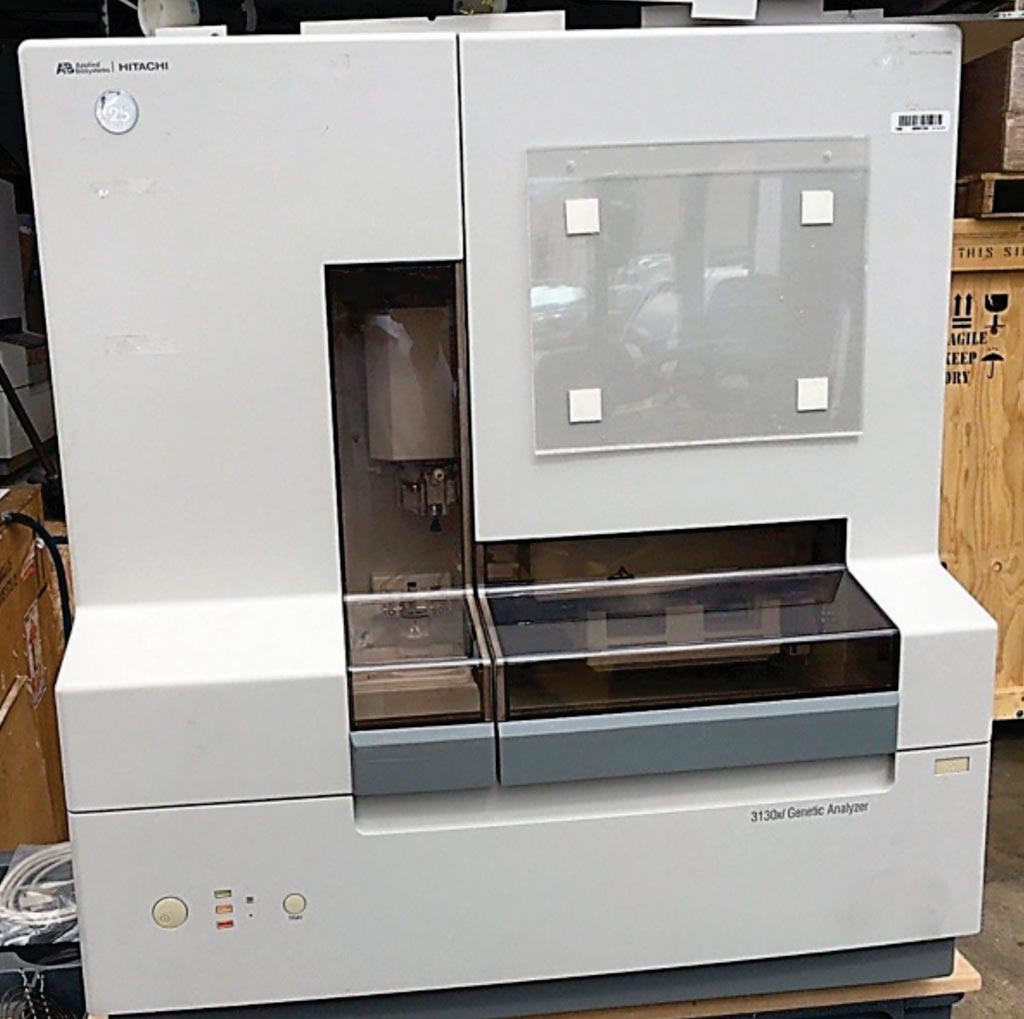Assay May Boost Treatment of Non-Hodgkin Lymphoma
By LabMedica International staff writers
Posted on 14 Nov 2017
Diffuse large B-cell lymphoma (DLBCL) is an aggressive cancer and the most frequently diagnosed non-Hodgkin lymphoma worldwide. Recent advancements indicate that both the prognosis and choice of treatment of DLBCL may depend on identifying its molecular subtype.Posted on 14 Nov 2017
DLBCL includes three major subtypes termed germinal center B-cell-like, activated B-cell-like, and primary mediastinal B-cell lymphoma. A reliable, accessible, rapid, and cost-effective new gene expression signature assay has been developed that can enhance lymphoma management by helping to match tumors with the appropriate targeted therapy.

Image: The Hitachi ABI 3130XL capillary electrophoresis genetic analyzer system (Photo courtesy of Cal-L enterprises).
A team of scientists working with those at the Centre Henri Becquerel (Rouen, France) collected a total of 218 biopsy samples, including fresh/frozen biopsies of 150 DLBCL cases had previously been analyzed using U133 + 2 GEP arrays. A total of 38 primary mediastinal B-cell lymphoma (PMBL) cases from another trial and 29 from the Center Henri Becquerel, were also included as well as 30 DLBCL cases from the same institution.
The investigators extracted RNA samples from formalin-fixed paraffin-embedded (FFPE) tissue using Siemens TPS and Versant reagents kit. Immunoperoxidase stains were performed on a Benchmark Ultra automated stainer using Ultraview Universal diaminobenzidine detection kits. A rapid and inexpensive reverse transcriptase multiplex ligation-dependent probe amplification (RT-MLPA) assay was developed that allows for an accurate classification of germinal center B-cell-like (GCB) and activated B-cell-like (ABC) DLBCLs. The resulting MLPA amplicons were analyzed by fragment analysis using an ABI 3130 XL capillary electrophoresis system.
The team tested 150 RNA samples extracted from biopsies and 42% of the samples had the ABC subtype, 37% the GCB subtype, and 10% molecular PMBL, while 11% of samples could not be classified. Overall, the RT-MLPA assay correctly assigned 85.0% of the cases into the expected subtypes compared to 78.8% with immunohistochemistry. The assay was also able to detect the MYD88 L265P mutation, one of the most common genetic abnormalities found in ABC DLBCLs. This information can influence treatment, since the presence of the mutation has been suggested to be predictive of ibrutinib sensitivity.
The authors concluded that RT-MLPA appears as an efficient, rapid, and cost-effective alternative to the current methods used in the clinic to establish the cell of origin classification of DLBCLs. In contrast to other technologic approaches its implementation requires only common laboratory equipment, that is, a thermal cycler and a capillary genetic analyzer, and does not necessitate the acquisition of any specialized platform. By allowing the identification of the three major DLBCL subtypes and a simultaneous evaluation of multiple prognostic and theranostic markers and therapeutic targets, RT-MLPA could contribute to a more efficient management of these aggressive tumors in both clinical trials and daily practice. The study was published in the November 2017 issue of the Journal of Molecular Diagnostics.
Related Links:
Centre Henri Becquerel














